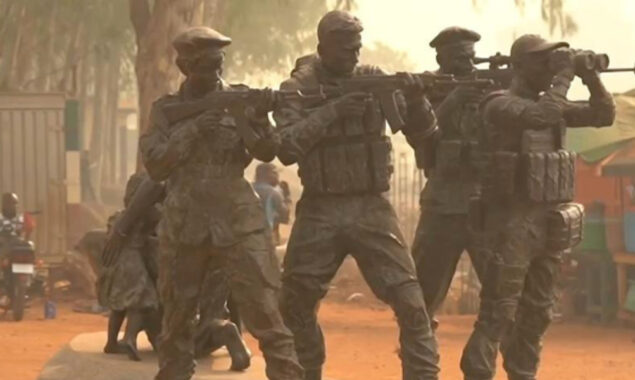Togo’s president agreed to serve as a mediator
Togo's President Faure Gnassingbe has agreed to act as a mediator in...

Earlier this year, Western sources told that the Wagner mercenary outfit was the “thin end of the wedge” and a “Trojan horse” for Russia’s clandestine plan to expand its influence in resource-rich and unstable portions of Africa.
In Mali, the organisation is filling the void left by the departure of French forces who spearheaded international efforts to combat a decade-long insurgency. This endeavour, which included one of the world’s largest UN peacekeeping forces, failed, and the violence has spread across the dangerous Sahel area, displacing tens of millions and destabilising weak nations like Niger and Burkina Faso.
“Wagner is one of the tools Russia is employing to expand influence and advance economic and other objectives in Africa,” said Jared Thompson, a research associate at the Center for Strategic and International Studies in Washington DC’s Transnational Threats Project. “Wagner came in Mali at the same time when Malian officials were visiting Russia and Moscow was supplying armaments to Bamako [Mali’s capital].” This strongly implies that Wagner’s deployment is part of a larger initiative.”
Last Friday, Russia’s foreign minister, Sergei Lavrov, told Italian television that Wagner was in Mali and Libya “on a commercial basis,” reiterating Moscow’s official view that Wagner “had nothing to do with the Russian state.”
Though the organisation assisted government forces in Central African Republic in repelling a rebel attack, their operation in Mozambique against Islamic terrorists was a terrible and costly disaster.
According to observers, Wagner’s actions in Mali risk a reaction among local people, exacerbating Islamist extremist bloodshed in the country.
“The Russians are like a bull in a china shop, appearing to be unaware of or unconcerned about the critical ethnic dynamics,” said Corinne Dufka, a Human Rights Watch researcher working in the Sahel. “Their behaviour – with the evident collaboration of the Malians – is exacerbating ethnic tensions and spawning a slew of new terrorists as a result of these exactions.”
Wagner’s action was part of a larger offensive conducted by Malian forces across central Mali in response to militant successes in locations closer to Bamako. Analysts are sceptical that it will be successful.
“It’s basically a governance problem, so a military reaction alone is unlikely to be beneficial, especially if it risks increasing existing problems with impunity in Mali,” said Catherine Evans, a director at Independent Diplomat and a former British ambassador to Mali.
Catch all the International News, Breaking News Event and Latest News Updates on The BOL News
Download The BOL News App to get the Daily News Update & Follow us on Google News.